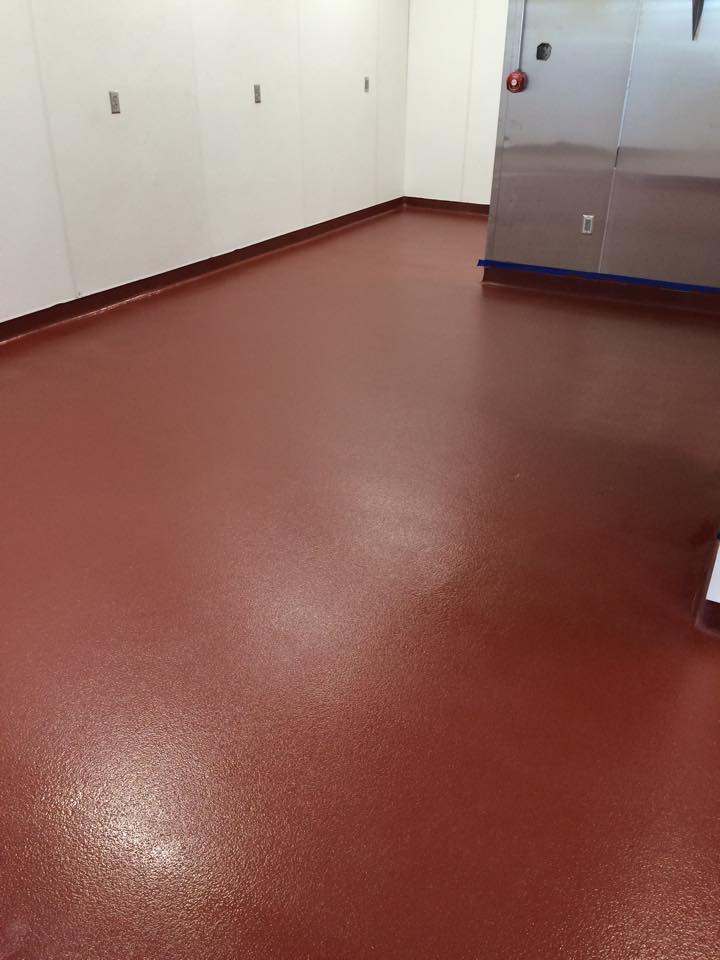
![]()
Two of the most common types of resinous industrial floors you will find are epoxy and polyurethane floors. So, what is the difference between the two and which one should you choose? The answer to that varies. Let’s look at some of the differences of the basic polyurethane and epoxy coatings. Just to clarify, we will look at regular polyurethane and epoxy coatings, there are many different types of polyurethanes available and there are even types that combine the needs of both epoxy and polyurethane, but for comparison purposes we will focus on basic types.
Let’s begin with epoxy coatings. Epoxies are preferred in industrial settings like warehouses and areas where there is a lot of heavy vehicle traffic, such as forklifts. This is because epoxies are more durable, much harder, and have a lot higher of a compression strength than polyurethanes do. Polyurethanes on the other hand, are more elastic and soft, which makes them more scratch resistant. Polyurethane also absorb more impact due to the elasticity of the coating. This factor makes polyurethane preferred over epoxy in industrial freezer settings where temperatures get as low as -22 Fahrenheit. Polyurethane is also a good choice for multi-level parking garages due to the elasticity acting as a crack bridging layer and waterproofer.
Polyurethanes are also preferred in food industries such as dairy, milk, and cheese processing companies that have exposure to lactic acid. The organic acids produced can cause epoxy coatings to turn yellow or corrode. Although, industries that work with items that are associated with sulfuric acid, such as a battery manufacturing company, fair better with epoxy floors than polyurethane floors. It is important to consider which kind of industry of setting the coatings are being applied in before making your choice. Consulting with the manufacturer to check which is the preferred coating is highly recommended.
When it comes to application there are a lot of differences too. For example, polyurethane tends to be more sensitive to humidity than epoxy is. With moisture or condensation on an uncured floor, polyurethane coatings can have disastrous results, which can lead to completely redoing the coatings. Epoxy is also sensitive to moisture, but the damage is usually limited to blushing or discoloring. Considering the climate and humidity in the work environment can also help you to decide which coating to choose.
Another consideration is curing time. Polyurethanes can be adapted to shorten or lengthen their pot life, recoat time, and total time it takes to cure. This allows contractors to finish polyurethane floors in less time with the floors being ready for use in a short time frame. For example, a polyurethane floor can be applied in multiple coatings on a Friday and be operation ready by the following Monday morning. Epoxies typically fully cure in about seven days, which does not match the convenience of polyurethanes. However, polyurethanes are more difficult to work with overall. Due to their humidity issues and limited pot life it is recommended that highly trained and skilled professionals apply the product.
When it comes to cost comparison, there isn’t a great way to differentiate between the two. There are so many products available that it is up to the contractor to decide what they like. Contacting manufacturers is always an option if there are questions.
There are so many creative and custom options for finishing concrete, but first and foremost important is the concrete itself. At Custom Concrete Creations we have state of the art equipment and a properly trained team with years of experience. Custom Concrete Creations is a premier contractor serving the Omaha area as well at the Midwest. Give us a call or send us an email for your custom concrete finishing needs today!
